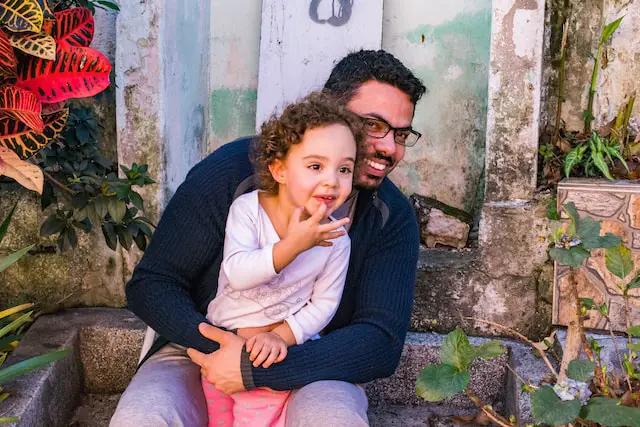Parenting is difficult and becomes even more challenging when you are no longer in a relationship with your partner. In such a case, co-parenting, or working together with your ex-partner to raise your children, can be difficult.
Co-parenting requires a level of cooperation and communication that is not always easy to maintain, particularly when emotions are strong. But what if one parent refuses to co-parent? Can they be deprived of custody of their children? Don’t worry, you will get the answers to all as you read on!

Learnings From The Blog
In this article, you will learn everything regarding custody agreements, cases related to failure to co-parent and their ramifications. We will also closely examine the legal ramifications of not co-parenting and how it may affect your relationship with your children.
Understanding Custody and Co-Parenting
Legal Definition
Custody refers to the legal structure defining who has these decision-making powers and obligations in a divorce or separation. Or to put it simply, custody is a legal word that relates to the right to decide about a child’s upbringing, such as where they will reside, attend school, receive medical treatment, and whether or not they participate in extracurricular activities.
Importance of co-parenting in custody agreements
Co-parenting is a custody strategy in which both parents make decisions and raise their children jointly, even if they are no longer in a romantic relationship.
This involves agreeing on schedules, sharing duties, and successfully conveying key choices.
For instance, legal custody is the authority to make major decisions about a child’s upbringing, such as healthcare, education, and religious practices.
Both parents have equal decision-making rights in a joint legal custody agreement. In a sole legal custody agreement, one parent has sole authority over these decisions.
Depending On The Family’s Circumstances, Various Custody Arrangements Can Be Created
- A child spends nearly equal time with both parents in a joint physical custody arrangement. The child generally resides with one parent in a sole physical custody arrangement, and the other parent may have visitation rights.
- There are additional arrangements, such as shared custody, in which the child spends significant time with both parents but not necessarily an equal amount. It’s also like split custody, in which each parent has physical custody of one or more children.
Co-parenting is essential for ensuring that children have stable, loving connections with both parents and that key decisions are made in their best interests, regardless of the precise custody arrangement.
Failure to co-parent can have major legal and emotional ramifications for both parents and their children.
What Does Not Co-Parenting Mean?
One parent fails or refuses to collaborate with the other parent in making critical decisions about their child’s upbringing or sharing responsibility for the child’s care is referred to as not co-parenting.
One parent consistently disregarding or dismissing the other parent’s opinions or ideas, failing to communicate effectively about important decisions, refusing to cooperate with the other parent’s requests or schedules, or outright ignoring the other parent’s existence when it comes to parenting matters are all examples of not co-parenting.
Negative Effects Of Non-Co-parenting
The absence of co-parenting can have serious consequences for the child.
- It can create an unstable and confused atmosphere for the child since they may hear contradictory messages from each parent or feel trapped in the middle of their parents’ disagreement.
- It can also cause a schism in the kid’s connection with one or both parents, as the youngster may feel neglected or excluded by the parent who is not actively co-parenting.
- In severe circumstances, not co-parenting can cause emotional trauma, anxiety, or depression in the child.
Effects Of Not Co-parenting
Failure to co-parent has major legal ramifications.
- If one parent frequently fails to cooperate with the other, it may be grounds for changing custody arrangements or losing custody rights entirely.
- In custody judgements, courts often prioritise the child’s best interests. A parent unwilling or unable to co-parent effectively may be viewed as a harm to the child’s well-being.
Consequences Of Not Co-Parenting
Failure to co-parent can have major legal, psychological, and emotional ramifications for all parties involved.
Legal ramifications: In a custody battle, the court may consider each parent’s willingness to co-parent when deciding on custody and visitation.
If one parent regularly refuses to collaborate with the other parent or intentionally opposes their efforts to co-parent, their custody and visitation rights may suffer.
A court can interpret this behaviour as evidence that the parent is not acting in the child’s best interests and may award custody to the other parent or limit the non-cooperative parent’s visitation rights as a result.
Psychological consequences: Failure to co-parent can have a negative impact on a parent’s mental health and well-being. It can cause feelings of rage, irritation, resentment, and persistent tension between the parents.
This continual struggle can also cause tension and worry, impairing a parent’s ability to make good decisions for their child.
The effect on the child’s well-being: The consequences of not co-parenting can be very detrimental to children. Children want stability and regularity, and when parents fail to co-parent, the child is exposed to a chaotic and unpredictable environment.
Children may also feel trapped in the middle of their parents’ arguments, causing mental pain and worry. It can cause severe trauma, sadness, and even physical harm.
How Can You Lose Custody For Not Co-Parenting?
The factors evaluated by the court in custody disputes differ based on the state and the facts of the case. However, the court’s first concern in custody battles is the child’s best interests. The court may consider a variety of considerations to establish what is in the best interests of the child, including:
- The age, gender, and physical and mental health of the child
- The ability of each parent to meet the child’s fundamental necessities, such as food, shelter, and medical care
- The child’s relationship with each parent, including emotional attachments and caregiving history
- The ability of each parent to offer a secure and safe home environment for the child
- The educational and social requirements of the kid
- Any history of parental abuse or neglect
- The ability of each parent to foster the child’s relationship with the other parent.
According to the court, effective co-parenting is crucial for ensuring that the child’s best interests are served.
- A parent who is unwilling or unable to co-parent may be viewed as a threat to the mental and physical well-being of the child.
- When deciding on custody and visitation, the court may examine evidence of a parent’s ability or inability to co-parent.
Can You Lose Custody for Not Co-Parenting?
- In these situations, the court concluded that one parent’s refusal to co-parent was not in the kid’s best interests and that giving custody to the other parent would be better for the child.
- A parent who persistently fails to attend scheduled visitations ignores the other parent’s contact requests, or intentionally undermines the other parent’s authority and decision-making abilities, for example, may be deemed unsuitable to have custody.

What Can You Do If Your Co-Parent is Not Co-Parenting?
If your co-parent is not co-parenting, you have numerous options to try to fix the situation:
Communication strategies: Communicating with the other parent is one of the first stages in addressing co-parenting difficulties.
Maintain open and courteous communication while focusing on the child’s needs. Consider using technology to communicate, like email or a co-parenting app, to assist in organising communication and avoid misunderstandings.
Legal alternatives: If communication techniques fail, legal action may be required. A family law attorney can assist you in understanding your legal alternatives, which may include changing the custody arrangement, enforcing the existing custody order, or seeking mediation or counselling.
If the other parent violates the custody order, you may be entitled to submit a request in court to have it enforced.
Counselling and mediation: Counselling and mediation might be useful in addressing co-parenting issues in some instances.
A qualified therapist or mediator can assist parents in identifying and resolving disputes and developing a plan for good co-parenting. This is especially useful when communication has gone down, or there is a high level of tension between the parents.
Conclusion
Co-parenting is essential in ensuring children’s well-being in custody disputes. Not co-parenting can have major legal and psychological ramifications and negatively impact the child’s well-being.
It is critical to prioritise the child’s best interests and work towards good co-parenting, even if this requires legal action, counselling, and mediation services.
Parents can develop a strong co-parenting relationship that benefits everyone involved by keeping open communication, being willing to compromise, and prioritising the child’s needs.










